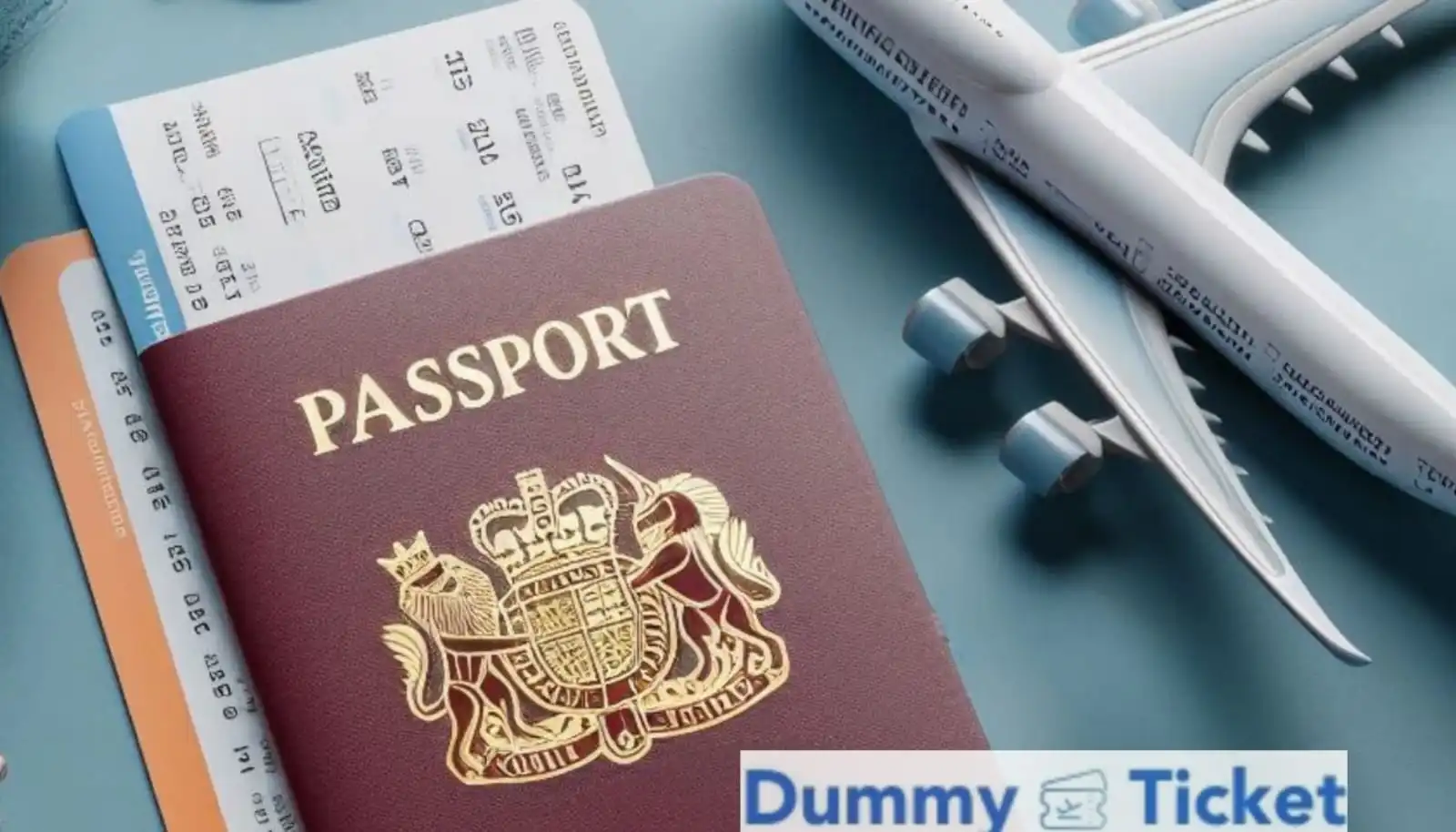With its strategic location in the heart of Europe and a thriving economy, the Czech Republic stands as an attractive destination for those seeking new job opportunities and a promising professional future. From its charming historic cities to its advanced industries, the Czech Republic offers fertile ground for growth and development. However, realizing the dream of working in the Czech Republic requires a precise understanding of the requirements and procedures for obtaining a Czech work visa or a Czech work permit. This comprehensive guide will illuminate all aspects related to securing legal authorization for employment and residency.
Understanding Visa Types: Charting the Right Path for Your Professional Stay in the Czech Republic
Distinguishing between visa types is the first and most critical step when planning to immigrate to the Czech Republic for work. Each type serves a specific purpose, with varying durations of stay and distinct requirements.
Schengen Business Visa (Short-stay - Type C)
This visa is not a "work visa" in the traditional sense, meaning it doesn't allow for permanent employment. Instead, it's designed for short-term business activities. This visa is granted for visits not exceeding 90 days within a 180-day period.
Main Purposes:
Business Meetings and Negotiations: For meeting business partners, signing contracts, or discussing commercial strategies.
Attending Conferences and Trade Fairs: Participating as an exhibitor or visitor in major industry events.
Short-term Training: For training that is not considered full employment and lasts for a limited period.
Exploratory Activities: For researching potential investment opportunities or partners in the Czech market.
Letter of invitation for business Czech Republic: Must be from the inviting company or organization in the Czech Republic, stating the purpose and duration of the visit, and acknowledging responsibility for accommodation and costs if applicable.
Itinerary of the visit: Detailed schedule of planned activities during the stay.
Proof of business relationship: Documents proving previous partnerships or negotiation correspondence.
Employment certificate from your home country: Stating your position and the purpose of your assignment.
Important Notes: This visa does not entitle the holder to seek employment after arrival, nor can it be converted into a long-term residence permit from within the Czech Republic.
2. Long-term Visa for Work (Type D) and Residence Permit for Work
This category is the primary pathway for immigrating to the Czech Republic for work for stays longer than 90 days. In most cases, this visa requires obtaining a Czech work permit from the Czech Ministry of Labor and Social Affairs before applying for the visa itself.
Relevant Keywords: Czech work visa, Czech work permit, Czech long-term visa for work, Czech employee visa, Czech employment visa, EU Blue Card Czech Republic, Czech self-employment visa, Czech seasonal work visa.
Visa Types within this Category:
Employee Card (Employee Visa / Employment Visa):
Description: This is the main instrument for non-EU citizens to work in the Czech Republic. It combines a residence permit and a work permit into a single document.
Requirements: You must have a job offer from a Czech employer. The employer must notify the Labor Office of the vacancy and confirm that no Czech or EU citizen is qualified for the position.
Related Keywords: Czech employment visa, Czech employee visa.
EU Blue Card Czech Republic:
Description: Aimed at highly skilled professionals with high academic qualifications (typically a university degree of at least three years). It offers additional benefits and facilitates easier labor market access within other EU countries after a certain period.
Requirements: The agreed salary must be at least 1.5 times the average gross annual salary in the Czech Republic, and you must have an employment contract for at least one year.
Related Keywords: EU Blue Card Czech Republic, Czech highly skilled visa.
Self-Employment Visa / Trade License (Zivnostenský List Visa):
Description: For individuals planning to work as independent contractors (freelancers) or establish their own businesses in the Czech Republic.
Requirements: Proof of financial ability to cover living expenses without needing employment, a business plan, and proof of possessing the qualifications or experience in the field they will be working in.
Related Keywords: Czech self-employment visa.
Seasonal Work Visa:
Description: Granted to workers in specific sectors such as agriculture and tourism for short, defined periods, usually not exceeding 90 days per year, but can be extended under certain circumstances.
Essential Application Requirements: Required Documents for Czech Work Visa
Regardless of the visa type, there's a set of core documents that form the cornerstone of any Czech work visa application. Accuracy and completeness at this stage can determine the success of your application.
1. Visa Application Form:
The official visa application form (Schengen or long-term) must be accurately and clearly completed and signed. It can usually be found on the website of the Czech Embassy in [Your Country] or the Czech Ministry of Foreign Affairs.
2. Valid Passport:
Must be valid for at least three months beyond your intended departure date from the Schengen area (for Schengen visas), and for a longer period for long-term visas. It must contain at least two blank pages.
3. Recent Passport-Sized Photos:
Passport-sized photos, recent (not older than six months), with a white background, and meeting ICAO standards.
4. Proof of Accommodation in the Czech Republic:
For short-term stays: Hotel booking confirmation, or a letter of invitation from a Czech host (with proof of their ownership or rental of the accommodation).
For long-term work visas: Notarized lease agreement, proof of property ownership, or a letter from the employer stating they provide accommodation.
5. Proof of Sufficient Financial Means:
Bank statements for the last 3-6 months, salary slips, a financial guarantee letter from the employer, or any other evidence proving your ability to cover your living and accommodation expenses without becoming a burden on the state. The required amounts vary depending on the duration of stay.
6. Travel Medical Insurance:
Must be valid in all Schengen states (for Schengen visas) or in the Czech Republic (for long-term visas), covering the entire duration of stay, with a minimum coverage of €30,000 for emergency medical expenses and repatriation.
7. Clean Criminal Record (Certificate of No Criminal Convictions):
A certificate issued by the competent authorities in your home country and/or any country where you have resided for more than six months during the last three years, stating that you have no criminal record. It must be legalized and officially translated.
8. Additional Work-Specific Documents (for Long-term Visas):
Signed Employment Contract: An official employment contract signed between you and the Czech employer, detailing terms of employment, salary, contract duration, and job position.
Work Permit (if not part of the Employee Card): In some cases, a separate Czech work permit might be required from the Czech Labor Office before applying for the visa. The employer usually handles this step.
Proof of Qualifications and Professional Experience: University degrees, diplomas, training certificates, letters of recommendation, and a detailed Curriculum Vitae (CV). These documents must be legalized and translated.
Official Invitation Letter from the Employer: Specifying job details, salary, and reasons for your employment.
Proof of Non-Availability of Czech or EU Citizens: The employer must prove that the vacant position could not be filled by a Czech or EU citizen (except for the Blue Card in some cases).
Application Steps and Processing Times: Your Journey to a Czech Visa
The application process demands patience and precision, and some details may vary depending on the specific embassy or consulate you apply through.
1. Determine the Appropriate Visa Type:
Based on your purpose and duration of stay, choose between a Schengen business visa or a long-term work visa.
2. Gather and Prepare Documents:
Begin by collecting all required documents for Czech work visa. Ensure all original documents and translated copies (if necessary) are properly legalized. Do not overlook any detail.
3. Book an Appointment at the Embassy / Consulate:
Most Czech embassies and consulates require you to book Czech visa appointment in advance to submit your application. This is typically done through an online booking system on the embassy's website or via an authorized visa application center (e.g., VFS Global). Book your appointment well in advance, as slots may be limited, especially during peak seasons.
4. Submit Application and Personal Interview:
On the scheduled date, submit all your documents. You might be asked to attend a short personal interview, especially for long-term visas. Be prepared to answer questions about your reason for travel and work plans in the Czech Republic, and how you will financially support yourself. You may also be asked to provide fingerprints.
5. Pay Visa Fees:
The Czech work visa cost must be paid at the time of application submission. Fees vary depending on the visa type and the applicant's nationality. Confirm the accepted payment method (cash, credit card, bank transfer).
6. Track Application and Await Decision:
After submitting your application, you will receive a receipt or a reference number to track its status. Czech visa processing times vary significantly.
For Schengen visas: Usually takes a few days to two weeks.
For long-term visas and work permits: Can take several weeks or even months, as the process involves approvals from multiple Czech government agencies (e.g., Ministry of Interior, Labor Office). It is advisable to apply at least 2-3 months before your planned travel date.
Key Tips to Maximize Your Approval Chances and Application Success
To ensure a smooth application process and increase the likelihood of your application's approval, follow these professional tips:
1. Accuracy and Completeness in Documents:
Incomplete or erroneous documents are the most common reason for visa refusal. Double-check every document meticulously and ensure it's translated and legalized if required. Use official checklists.
2. Thorough Interview Preparation:
If an interview is required, be confident and clear in your answers. Focus on your genuine purpose for travel and work, and avoid contradictions between your statements and documents. Show a basic knowledge of the Czech Republic and its culture.
3. Absolute Honesty and Transparency:
Do not provide any false information or forged documents. Lying or misleading can lead to visa refusal and a ban from entering the Schengen area for many years.
4. Adherence to Deadlines and Early Application Submission:
Start the application process as early as possible. Do not wait until the last minute, especially for long-term visas.
5. Proactive Job Search:
Especially for long-term visas, securing a confirmed employment contract from a Czech employer is the key to obtaining a work visa. Begin searching for jobs that match your qualifications before even considering the visa. Use international and local job platforms.
6. Understanding Czech Labor Law for Foreigners:
Before traveling, familiarize yourself with Czech labor law for foreigners. Understanding your rights and obligations as a foreign worker will protect you from potential exploitation and ensure a fair working environment. You can find information on this on the Czech Ministry of Labor websites.
7. Learning Basic Czech Language:
Although many Czechs speak English, learning some basic phrases in Czech will demonstrate your seriousness and willingness to integrate, and may have a positive impact during the interview or when interacting with authorities.
- 8. Consulting Experts:
- If your situation is complex or you are unsure about any step, do not hesitate to consult an immigration lawyer or a reliable visa agency.
Does a Czech Schengen visa for work require a Dummy flight ticket?
Yes, in most cases, whether you're applying for a Czech Schengen visa for business (short-stay) or even a long-term work visa for the Czech Republic, you'll need to provide proof of a Dummy flight ticket.
The crucial point here is that embassies and consulates typically do not require you to purchase actual Dummy flight tickets before getting visa approval. In fact, it's strongly advised not to buy non-refundable tickets until your visa has been issued.
Why Do You Need a Dummy flight ticket?
- Proof of Travel and Intent to Return: A Dummy flight Ticket shows that you have a concrete travel plan for entering and exiting the Schengen area (or the Czech Republic). This helps demonstrate that your intentions align with the visa type you're applying for (e.g., that you don't intend to overstay illegally after a short-term visa expires).
- Determining Travel Dates: It helps the embassy establish the start and end dates for the visa they will issue to you.
- Essential Document Requirement: A "round-trip Dummy flight Ticket or itinerary" is listed as one of the fundamental documents required for Schengen visa applications.
Yes, you need to provide proof of a Dummy flight Ticket (temporary or an itinerary) when applying for a Czech Schengen visa for business. However, the key is not to purchase an actual, non-refundable flight ticket before your visa is approved to avoid financial loss in case of refusal.
Czech Republic Visa Acceptance Rate and Appointment Booking
Understanding the acceptance rate for a Schengen visa to the Czech Republic and the details of booking an appointment are crucial for applicants. Here's a detailed breakdown based on available data.
1. Czech Republic Visa Acceptance Rate
Generally, the Czech Republic is considered one of the countries with a good acceptance rate for Schengen visas.
- Overall Schengen Visa Acceptance Rate (as of 2023):
- Some sources indicate that the Czech Republic had a rejection rate of about 17.4% for Schengen visas in 2023. This means the success rate was approximately 82.6%.
- Other sources have reported an even higher acceptance rate of up to 95.3% for Czech Schengen visas during certain periods.
- Important Note: These percentages are for all Schengen visas combined (tourism, business, visitor, etc.), not specifically for work visas. Precise, publicly available data on the acceptance rate for "work visas" separately is not readily available, as these are often long-term residence visas and depend heavily on a pre-existing job offer and work permit.
- Factors Influencing the Acceptance Rate:
- Fulfillment of All Requirements: The highest percentage of rejections is often due to missing or inaccurate required documents, insufficient proof of financial means, or failure to demonstrate intent to return to the country of residence after the visa expires (especially for short-term Schengen visas).
- Purpose of Visit: Applications for long-term work visas (Employee Card / Blue Card) generally have a higher acceptance rate if the applicant has a confirmed job offer and a work permit already issued by the Czech authorities.
- Criminal Record: Any past criminal record can lead to visa rejection.
- Medical Insurance: Lack of valid and sufficient medical insurance is a common reason for refusal.
To improve your chances of visa acceptance:
- Ensure all required documents are submitted accurately and completely.
- Provide strong and sufficient proof of financial means.
- Be prepared to answer questions clearly and truthfully during the interview.
- If it's a long-term work visa, ensure your employment contract and work permit (if applicable) are valid and correct.
2. Booking a Czech Visa Appointment
The process for booking an appointment to submit your Czech visa application varies depending on the type of visa (short-term Schengen or long-term residence) and your country of residence.
In general, here are the steps and information:
- Determine Visa Type: Before booking an appointment, you must clearly identify the type of visa you need (Schengen business visa or long-term work visa).
- Consulate/Embassy or Visa Application Center: Visa applications are submitted at the Czech Embassy or Czech Consulate in your country of residence, or through an authorized visa application center (such as VFS Global or TLScontact) if the embassy works with an external service provider.
Example: Booking a Czech Visa Appointment in Egypt (Based on available information for the Czech Embassy in Cairo):
The method for booking appointments for long-term visas differs from Schengen (short-term) visas:
- For Long-term Visas (e.g., Work Visas):
- Appointments are usually booked by sending an email to a dedicated email address for long-term visa applications.
- Dedicated Email Address in Cairo: [email protected]
- Important Conditions when sending the email:
- For each applicant: Only one email. Sending multiple messages for the same person may lead to automatic exclusion.
- The subject line of the email must contain only the purpose of travel (one word from the specific list provided by the embassy, such as "Work").
- The email must include essential personal information about the applicant (first name, last name, date of birth, nationality, passport number, purpose of stay, phone, email).
- Attachments (e.g., a copy of the passport data page and a copy of the document proving the purpose of stay, such as an employment contract) must be in PDF format only and not exceed 2 MB.
- The applicant must be a citizen of Egypt, Sudan, Eritrea, Yemen, or Palestine. Other nationalities must have been residing in Egypt for more than two years with a non-tourist residence permit.
- Appointments are granted based on the order of email receipt and the consulate's capacity.
- For Short-term Visas (Schengen - for tourism or short-term business):
- There might be an online booking system on the embassy's website, or an external visa center (like VFS Global or TLScontact) might be handling it, requiring you to create an account and book an appointment through their platform.
- In the case of the Czech Embassy in Cairo for Schengen visas (tourism or short-term business):
- Appointments are also booked by sending an email to a dedicated address.
- For tourism visas: [email protected]
- For other short-term visas (including business): There are specific email addresses that must be checked on the embassy's website (e.g., [email protected] or similar if applicable, or it might fall under an "other" category).
- Conditions are similar to long-term visa applications regarding email information and attachments.
- There might be an appointment waiting period of 2-4 weeks, and it's advisable to apply at least 7 weeks before your planned travel date.
Important Tips for Booking Your Appointment:
- Refer to the Official Website: Always, always check the official website of the Czech Embassy in your country of residence (or consulate) for the most up-to-date and accurate instructions on how to book an appointment, dedicated email addresses, and any specific conditions. Procedures can change.
- Be Prepared: Have all required information and documents ready (especially your passport and purpose of visit) before attempting to book an appointment.
- Be Prompt and Follow Instructions: Since appointments are often granted on a "first-come, first-served" basis (especially via email), be quick and strictly adhere to the instructions regarding email format and content to avoid rejection of your booking request.
- Verify the Email Address: Ensure the email address you are using to send the appointment request is correct and dedicated to the purpose you are applying for.
Conclusion:
The Czech Republic truly offers vast career prospects and an attractive living environment. Obtaining a Schengen visa for the Czech Republic for work for short-term purposes, or a long-term visa for work in the Czech Republic for a permanent career path, requires a structured and precise approach. Through thorough preparation, understanding legal requirements, and adhering to the procedures set by the Czech Embassy, you can successfully achieve your dream of working and residing in the heart of Europe. Always remember that official government websites are the most reliable source for the latest and most accurate information and guidelines.



